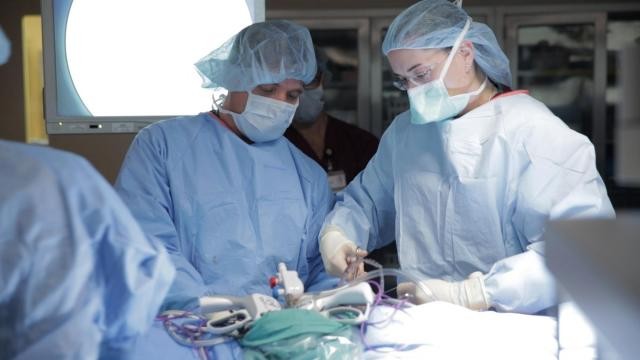China is expected to put more effort into research on animal-grown human tissues and organs for transplant once a proposed lifting of the ban on the technology is enacted in the United States.
According to Liu Changqiu, a research fellow on organ donation at the Shanghai Academy of Science's Institute of Law, once the ban is lifted, it will not be very long before China is able to catch up to the progress made by other countries in the field, the Global Times reported.
China's research on human tissues grown on animals, referred to as chimeras after the Greek mythological creature, has focused mainly on smaller and simpler tissues and organs like the skin, corneas, and cartilage. Progress on growing major organs like hearts and lungs is still a long way off due to the complexities of these that often lead to rejection by the recipient patient's body.
Liu added that there is also the risk of the transplanted tissue or organ carrying viruses or other disease-carrying pathogens could be transmitted from the animal where it was grown to the patient. He added that these concerns need to be addressed first before hospital ethics committees would be willing to allow clinical trials.
In 2015, the US National Institutes of Health (NIH) issued a moratorium on the funding of such research due to the above concerns, as well as due to questions on how the human cells inject into the animal for growing the transplant will function and how these will affect the animal itself.
However, an NIH presentation in November outlined the potential of the technology to provide animal models with human organs for styling organ development, as well as growing interest in the field. This was one of the factors that prompted the proposal to lift the ban.
Experts say that China will definitely welcome the lifting of the ban, as it will help in dealing with a growing number of organ donation cases. According to China Organ Transplant Response System head Wang Haibo, there were already 1,795 organ donation cases in the first half alone of 2016, Shanghai Daily reported.
Wang added that the country's annual transplant average already ranks first in Asia and third globally.
China is extensively revamping its organ donation system to meet the standards set by the World Health Organization. One significant step the country has undertaken is stopping the use of organs from executed prisoners, shifting to voluntary donations instead.
China is set to host an international conference on organ transplants later this year in Hong Kong.




























